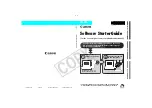
Chapter 2. Red Hat Update Agent
29
After running this command, your RHN System Profile will reflect the latest software versions in-
stalled on your system.
2.3.5.4. Log File
The
Red Hat Update Agent
keeps a log of all the actions that it performs on your system in
the file
/var/log/up2date
. It uses the standard rotating log method. Thus, older logs are in
/var/log/up2date.1
,
/var/log/up2date.2
, and
/var/log/up2date.3
. The log files store
actions performed by the
Red Hat Update Agent
such as when your RPM database is opened,
when it connects to Red Hat Network to retrieve information from your System Profile, which
packages are downloaded, which packages are installed using the
Red Hat Update Agent
, and
which packages are deleted from your system after installation. If you choose to install and delete
packages yourself, it will not be logged in this file. You should keep your own log of actions not
performed with the
Red Hat Update Agent
.
2.4. Configuration
The
Red Hat Update Agent
offers various options to configure its settings.
If you are not running the X Window System or prefer the command line version, skip to Section 2.4.2
Command Line Version
.
2.4.1. Using the Red Hat Update Agent Configuration Tool
You must be root to run the
Red Hat Update Agent Configuration Tool
. If you start the
Red Hat
Update Agent Configuration Tool
as a standard user, you will be prompted to enter the root password
before proceeding. The
Red Hat Update Agent Configuration Tool
can be started by typing the
command
up2date-config
at a shell prompt (for example, an xterm or a gnome-terminal).
2.4.1.1. General Settings
The
General
tab allows you to enable an HTTP Proxy Server. If your network connection
requires you to use an HTTP Proxy Server to make HTTP connections, select the
Enable HTTP
Proxy
option and type your proxy server in the text field with the format http://HOST:PORT.
For example, to use the proxy server http://squid.mysite.org on port 3128, you would enter
http://squid.mysite.org:3128
in the text field. Additionally, if your proxy server requires
a username and password, select the
Use Authentication
option and enter your username and
password in the respective text fields.
Summary of Contents for NETWORK 2.6
Page 1: ...Red Hat Network 2 6 Enterprise Reference Guide...
Page 14: ...6 Chapter 1 What is Red Hat Network...
Page 46: ...38 Chapter 3 Red Hat Network Alert Notification Tool...
Page 80: ...72 Chapter 6 Using Red Hat Network with Red Hat Linux 6 2...
Page 94: ...86 Chapter 7 Red Hat Network Registration Client...
Page 100: ...92 Glossary...
Page 104: ......
















































